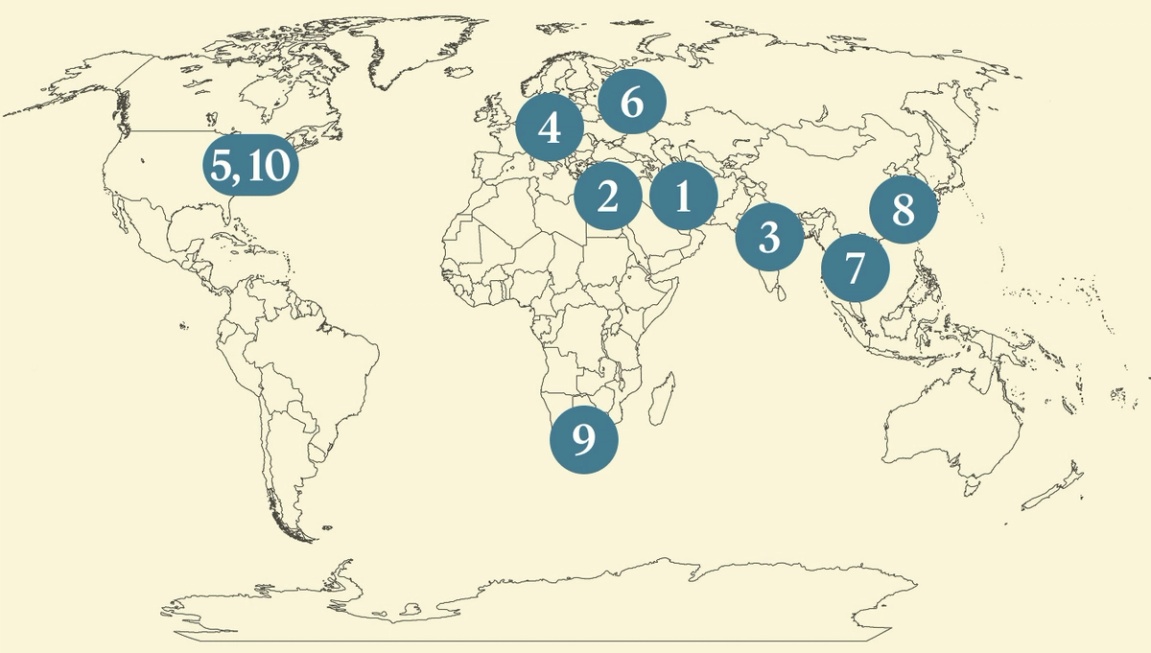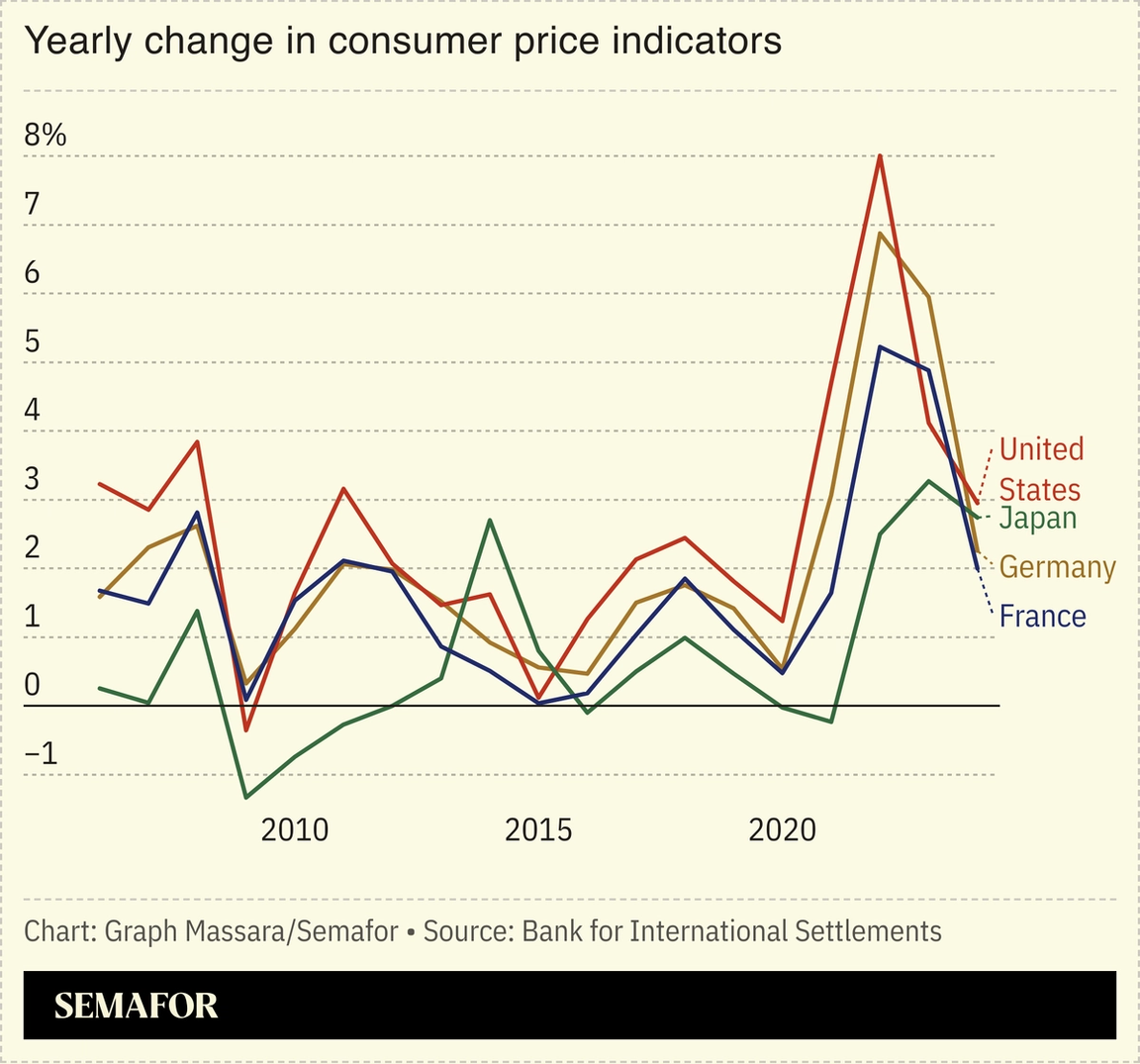| | The head of the UN’s nuclear watchdog says Iran could produce enriched uranium within ‘months,’ nati͏ ͏ ͏ ͏ ͏ ͏ |
| |  | Flagship |  |
| |
|
The World Today |  - Iran’s nuclear potential
- Push for Gaza ceasefire
- US trade deadline looms
- Central banks’ warning
- Trump bill advances
- Putin tightens secrecy law
- Massive Thailand protests
- Chinese coastal restoration
- Investing in drought resilience
- US same-sex marriages
 A rediscovered J.M.W. Turner painting inspires a grassroots campaign to keep it on public display. |
|
Warning over Iran nuclear potential |
 A satellite view of Fordow underground complex in Iran. Maxar Technologies/Handout via Reuters A satellite view of Fordow underground complex in Iran. Maxar Technologies/Handout via ReutersThe head of the United Nations’ nuclear watchdog said Iran could produce enriched uranium within “months,” contradicting US President Donald Trump’s assertion that Tehran’s nuclear program was “obliterated.” Rafael Grossi’s remarks echoed an earlier US assessment and European intelligence suggesting Iran’s nuclear ambitions were set back by just months — senior Iranian officials also reportedly said the US strikes weren’t as destructive as they’d expected. While the American attack may have stalled Iran’s near-term ability to make a bomb, some of the targeted facilities might not have existed if Trump hadn’t abandoned an earlier nuclear deal in his first term, experts told The New York Times. Trump said Friday he would consider bombing Iran again if Tehran enriched uranium to worrisome levels. |
|
Trump pushes for Gaza deal |
 Amir Cohen/Reuters Amir Cohen/ReutersIsrael’s military signaled it would intensify its campaign in Gaza as US President Donald Trump on Sunday called again for a ceasefire and hostage deal with Hamas. A top adviser to Israeli Prime Minister Benjamin Netanyahu is set to travel to Washington this week for talks, but it’s unclear if any significant progress has been made toward a truce. The renewed attention on Gaza comes as Israel’s military faces heightened scrutiny after Haaretz reported that troops were instructed to fire at unarmed Palestinians near aid distribution sites; one soldier called it a “killing field.” Israel’s government rejected the story, calling it “blood libel.” |
|
Countries scramble for US trade deals |
|
Central banks warned over inflation |
 The world’s “central bank of central banks” warned about the rising possibility of fresh outbreaks of inflation. The Switzerland-based Bank for International Settlements noted in a new report that consumers across the globe expect steep price increases in the next year — and that because of the lasting effect of COVID-era inflation, those predictions now risk becoming a self-fulfilling prophecy. “When it comes to inflation expectations, it’s once bitten, twice shy,” a BIS official said. The report gives clues to central bankers’ thinking as they cautiously trim interest rates amid subsiding inflation. Washington’s trade war adds to the volatility: Rising protectionism is eroding the global economic order, the BIS’ chief said, creating a “new era of heightened uncertainty and unpredictability.” |
|
GOP advances ‘big, beautiful bill’ |
 Sen. Thom Tillis. Elizabeth Frantz/Reuters Sen. Thom Tillis. Elizabeth Frantz/ReutersThe US Senate narrowly voted to advance President Donald Trump’s tax and spending package, as the White House ramped up pressure on lawmakers to pass the measure before July 4. Hurdles remain: Several Republican senators still want changes to the bill, which would cut taxes and bolster military spending while shrinking safety net programs like Medicaid. The bill, which still has to pass a final House vote if it clears the Senate, has challenged Republicans’ congressional majority and exposed party fault lines. Trump attacked GOP lawmakers who criticized the bill, including North Carolina’s Thom Tillis, who voted against it in a test of “whether he’d be able to flex his independence from Trump,” Semafor reported — Tillis later announced he won’t seek reelection. |
|
Russia expands secrecy law |
 Sputnik/Gavriil Grigorov/Pool via Reuters Sputnik/Gavriil Grigorov/Pool via ReutersRussian President Vladimir Putin expanded the country’s secrecy law, tightening his grip on society as Moscow and Kyiv exchanged bruising strikes. Information about Russia’s foreign and economic policy, as well as military mobilizations, can now be classified as secret if its disclosure is deemed harmful to national security. Putin has intensified his crackdown on dissent since Russia invaded Ukraine; one expert noted that the move to classify military call-up details was likely a reaction to Ukraine’s drone attacks. Kyiv on Saturday said it had hit a Russian missile and drone arsenal, hours before Moscow reportedly launched its largest airstrike on Ukraine since the start of the war. |
|
Thousands protest in Bangkok |
 Chalinee Thirasupa/Reuters Chalinee Thirasupa/ReutersThousands of protesters in Bangkok called for Thailand’s prime minister to resign amid a scandal linked to a weeks-long dispute with Cambodia. Tensions at the countries’ shared border have escalated since late May: The dispute morphed into a political crisis for the Thai government after a phone call leaked in which the Thai premier referred to Cambodia’s de facto leader as “uncle” and said she would “arrange” anything he wanted. Saturday’s demonstration was the largest anti-government protest since the ruling right-wing populist party came to power in 2023, the Bangkok Post reported. Analysts are closely watching the outpouring of public frustration in the country, where past governments have collapsed following large-scale protests. |
|
 Steve Inskeep has one of the most recognizable names and voices in the country, greeting millions of Americans every morning since the 2000s. This week, Ben and Max bring on the Morning Edition host to talk about NPR’s battle with the Trump administration, the role of public radio in an overcrowded media landscape, and why local journalism matters more than ever. They also discuss the conflict in Iran — a place that Steve has been to six times as a reporter — and whether Americans are less informed about global politics now than they were at the start of his career. Listen to the latest episode of Mixed Signals now. |
|
Restoration effort shows rewilding risks |
A massive coastal restoration project in China could increase methane emissions tenfold, a new study found, underscoring the unexpected environmental risks of rewilding. Launched in 2023, the project aims to curb an invasive weed choking up shipping lanes, clam farms, and marshlands, and replace it with native plants, like mangroves. An international team of researchers looked at emissions levels before and after the weed was removed, and found that dredging the plants led to spikes in methane. While the native flora will eventually combat those effects, that could take decades. Other countries considering similar restoration efforts “need to look at the bigger picture,” one scientist said, but the researchers also caution that abandoning the project isn’t the answer. |
|
Invest in drought resilience: OECD |
 Florence Lo/Reuters Florence Lo/ReutersThe world must invest in drought resilience as global warming changes rainfall patterns, the Organization for Economic Cooperation and Development warned. A new report by the group of high-income countries predicts that long periods of too little rain and not enough water will become more frequent and severe: Some 25% of the world’s land is now exposed to drought, up from 10% in the early 1900s. Water shortages cause a third of all deaths from natural disasters, as droughts can cripple food production and cause starvation. The report argues that every dollar invested in water management, climate-resilient farming, and forest and wetland conservation could have a $10 return purely by lessening the impact of future droughts. |
|
10 years after Obergefell v. Hodges |
|
|